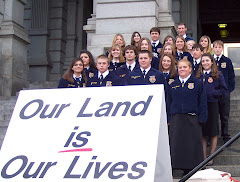Fort Carson, critics fight over heavier Pinon use
Fort Carson will be sending two battalions of the 4th Infantry Division to the Pinon Canyon Maneuver Site in August for several weeks of training — signaling an Army effort to increase its use of the 238,000-acre training ground, even as critics argue that effort defies a U.S. federal court ruling last year.
Col. Robert McLaughlin, garrison commander at the Mountain Post, candidly acknowledged in a recent interview that the Army has made little use of Pinon Canyon for the past five years or longer, but intends to change that starting this summer.
The 4th Division, like other Army divisions, has been rotating its four combat brigades in and out of Iraq and Afghanistan on virtually a yearly basis. The division's 2nd Brigade will be deploying again in the future and McLaughlin said several battalions will be sent to Pinon Canyon in August for training.
"Our plan is not to go above historical levels of training at Pinon Canyon," McLaughlin said. "We have not conducted brigade level training there in the past five years. On an annual basis, you'll be seeing more battalion rotations down to Pinon Canyon."
McLaughlin is careful to describe the Fort Carson plan — called Vision 2020 — as being within the historical use of the training ground because any increase in Army activity at Pinon Canyon sends up warning flares to the ranchers and other opponents of the Army's stated long-term goal of expanding the site.
Only last September, a U.S. District Court in Denver rejected an Army's environmental impact study that was done to support a plan to significantly increase the use of Pinon Canyon. The Army's base message was, with a growing number of soldiers being stationed at Fort Carson, more troops would need to do more training at Pinon Canyon.
On one hand, Army officials were reacting to the successful four-year campaign of area ranchers and other opponents of the Army's long-term goal of expanding Pinon Canyon. Thwarted by Congress and the Legislature from adding any additional land to the training ground, the Army environmental study seemed to say that without a bigger training ground, the current Pinon Canyon would have to suffer the consequences of heavier training by more soldiers.
U.S. District Judge Richard Matsch, however, ruled that by its own reports, the Army had previously done extensive environmental damage at Pinon Canyon even with infrequent use. Matsch said the Army's latest study had failed to address the broad impact of even heavier training use, so he set aside the Army's official decision to ramp up training there.
For opponents, such as the Not 1 More Acre! group which sued the Army, the court ruling meant the Army is sharply restricted in what it can do at Pinon Canyon today, never mind expansion. In an e-mail response last week, the group said Matsch's decision means the Army cannot conduct more than four months of training per year on Pinon Canyon, as spelled out in the Army's original environmental analysis dating back to the 1980s when Pinon Canyon was established.
"Historically, the Army has never used Pinon Canyon more than once or twice a year," the statement said. That was based on the Army's own records of its use of the 238,000-acre site.
Whether the Army and its opponents are headed back to court over the Visions 2020 plan will have to be seen, but Rep. John Salazar, D-Colo., did ask the Army's Inspector General's office this month to investigate the new Fort Carson strategy — and whether it violates a congressional ban that Salazar sponsors that bans the use of any funds to expand the training ground.
McLaughlin, who has been garrison commander for a year, said Army lawyers have assured him the plan is not violating Matsch's ruling or the Army's approved use of Pinon Canyon.
"We're conscious of what the Army has agreed to in the past and will not violate that," McLaughlin said.
As part of Vision 2020, McLaughlin said Fort Carson officials intend to meet frequently with Trinidad officials and others from Southern Colorado.
"We hope to develop a more routine relationship where the community is used to see soldiers at Pinon Canyon," he said.
Subscribe to:
Post Comments (Atom)
Blog Archive
-
▼
2010
(60)
-
▼
June
(8)
- Pueblo Chieftain - Sunday June 27th
- Trinidad Times on Festival and John Salazar
- Pueblo Chieftain on candidate statements at Festival
- Pinon Canyon Preservation Festival was held June 1...
- CCA Gubernatorial Town Hall June 15th
- Pinon Canyon Expansion Opposition Coalition Prese...
- Press Release: Candidates to present views on the ...
- June 19th 2010 Preservation Festival taking shape!
-
▼
June
(8)


No comments:
Post a Comment